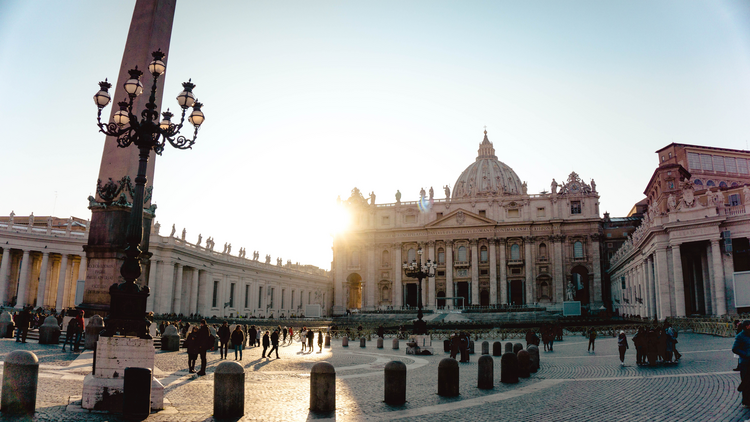
Gerard O’Connell
Photo by Yeo Khee on Unsplash
In a decision that is seen as a recognition of the Vatican’s achievements at financial transparency under Pope Francis, the Board of the European Payments Council last week “approved the extension of the geographical scope of the Single Euro Payments Area to Vatican City State and the Holy See.”
The Vatican today announced the approval of its application to join S.E.P.A., which is a payment-integration initiative of the European Union for simplification of bank transfers in the euro currency that came into effect in 2014.
The Vatican statement explained that “S.E.P.A. harmonizes the way electronic euro payments are made across Europe. It allows European consumers, businesses and public administrations to make and receive credit transfers as well as direct debit under the same basic conditions and makes all cross-border payments in euro as easy as domestic payments.”
Participation in S.E.P.A. means that the Holy See and the Vatican City State will be able to move money using an IBAN code. This will first benefit the Institute for the Works of Religion, commonly referred to as the Vatican Bank, and the administration that manages Vatican real estate, but in due course, the Vatican’s other financial institutions will also benefit.
Ever since his election as pope on March 13, 2013, Francis has sought to reform the Roman Curia, starting with Vatican finances.
In a decision that is seen as a recognition of the Vatican’s achievements at financial transparency under Pope Francis, the Board of the European Payments Council last week “approved the extension of the geographical scope of the Single Euro Payments Area to Vatican City State and the Holy See.”
The Vatican today announced the approval of its application to join S.E.P.A., which is a payment-integration initiative of the European Union for simplification of bank transfers in the euro currency that came into effect in 2014.
The Vatican statement explained that “S.E.P.A. harmonizes the way electronic euro payments are made across Europe. It allows European consumers, businesses and public administrations to make and receive credit transfers as well as direct debit under the same basic conditions and makes all cross-border payments in euro as easy as domestic payments.”
Participation in S.E.P.A. means that the Holy See and the Vatican City State will be able to move money using an IBAN code. This will first benefit the Institute for the Works of Religion, commonly referred to as the Vatican Bank, and the administration that manages Vatican real estate, but in due course, the Vatican’s other financial institutions will also benefit.
Ever since his election as pope on March 13, 2013, Francis has sought to reform the Roman Curia, starting with Vatican finances.
Tweet this
The Vatican said “it is foreseen that as of 1 March 2019, the S.E.P.A. schemes are open to the financial institutions of the Vatican City State/Holy See, once they have joined.” On that date, the following 36 countries will form part of S.E.P.A.: the 28 European Union Member States plus Iceland, Norway, Liechtenstein, Switzerland, Monaco, San Marino, the Principality of Andorra and the Vatican City State/Holy See.
“The successful application to S.E.P.A. is a very positive sign. It helps to facilitate payments and harmonizes such services. Furthermore, it demonstrates the Holy See’s efforts to enhance financial transparency,” according to René Bruelhart, a Swiss lawyer, whom Pope Francis appointed as the president of the board of directors of the Vatican’s Financial Information Authority, its anti-money laundering agency. He is the first layman to hold that position.


No comments:
Post a Comment